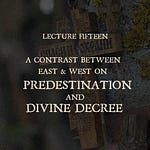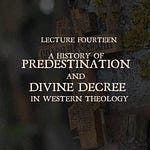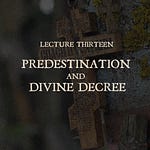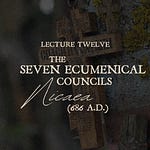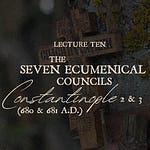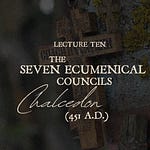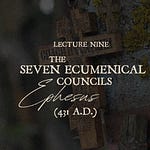These are transcripts from a spoken lecture. The audio is attached to this lesson. If there is any confusion from reading the transcript, please refer to the audio for clarification.
This is the second session in our march through the seven Ecumenical Councils of the early church. We talked about Nicaea last time, and we talked specifically about the question that was raised by Arius of Alexandria. Arius had suggested that the Son of God is actually a creature, and this was connected with the doctrine of eternal generation, or beginning, something we’ll talk about today.
Christ is referred in Scripture to as God’s only begotten Son, and Arius took this to be quite obvious indication that the Son is caused, right? Just as I have a son, and he’s caused by me to exist. Arius presumes there must have been a time when God was not yet a father. Then he decided he wanted to be a father, so he caused the Son to exist, and now he’s the father. And thus he must be a creature, a very God-like creature, to be sure, similar in nature to God, but a creature nonetheless.
And Athanasius insisted that this was not true, that this was contrary to the teachings of scriptures, and more importantly, as we saw, contrary to the Gospel according to the Eastern Church Fathers, how Athanasius and as we’ll see, other eastern fathers understand Christianity. And we saw that as the gospel was looked at in light of what Athanasius says. What we saw was that Athanasius insists that what Christianity really suggests is that every creature, the lot of every creature, is that we are changeable, because we come into existence and coming into existence and being subject to change, we’re subject to change for worse. This is what makes us susceptible to death, to dying, to corruption, to sin, to evil.
And the question is, how do we overcome that? And according to Athanasius, what Christianity teaches is we overcome this by participating in partaking of the only nature that is immortal, incorruptible and immune to such change and evil, which is the nature of God Himself. And so the gospel, according to Athanasius, is actually that the Son of God becomes one of us. He joins the divine nature with the human nature, in order that we, through union with Him might participate in God’s own immortality, God’s own incorruptibility, God’s own eternal life, God’s own goodness, virtue and righteousness.





